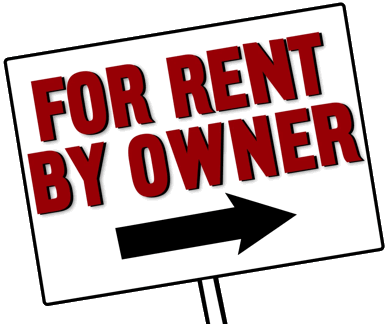In 2017 there were more renters than any time since the 1960s. As more Americans pull up stakes from rural areas and city centers expand, rentals are becoming big business. If you’re looking at renting a home or apartment you need to recognize certain differences in leasing structures including the differences between a landlord and a property manager.
Landlord and property manager seem like interchangeable terms on the surface and though they’re similar, there are major differences that could make or break your rental experience. Just as there are advantages to renting vs owning, there are also advantages to renting from landlords and property managers. Let’s compare a landlord vs property manager relationship, including what type of rentals they host and what type of service you can expect from each.
What is a Landlord?
The landlord is the owner of the rental. A landlord can own single family homes, single apartments, or smaller to larger rental communities. Most landlords own just one or a few rentals. In many cases, a landlord doesn’t consider managing his rentals a full-time job. Often, when a landlord acquires enough properties to manage, he’ll hire a property manager. The landlord is the most traditional and common style of property management.
What is a Property Manager?
A property manager is an intermediary company between an owner, or landlord, and a tenant or community of tenants. Where the landlord owns the property, a property manager does not. Property managers are most often used when there are too many tenants or properties for one single landlord to manage. A property manager might work for a larger apartment ownership company or multiple landlords.

Advantages of Landlords
Accessibility – It’s easier to directly access a landlord that owns your apartment or home, especially if the landlord only has a few rentals. You can call your landlord about questions immediately since many landlords live at or near tenant rentals.
One Name, One Place – It’s typically easier to get questions answered or services scheduled when you have one point of contact. You might call a property manager to report an issue or ask a question, but the manager may have to defer to the landlord, maintenance, or corporate offices for answers or help.
Customized Lease – Because they own the property, a landlord can work with you to customize a lease that fits you. In other words, your lease terms might be negotiable or more flexible than with a professional property management company. Property managers typically utilize general lease agreements that could pigeonhole you to a certain lease term or amount.
Disadvantages of Landlords
Accessibility – Accessibility was listed on advantages but sometimes it can go in the opposite of direction, especially in the case of vacation rentals. Landlords might disappear for days, weeks, or even months at a time, leaving you with a sink that won’t stop leaking or other issues you can’t fix. Where in some cases a landlord might make themselves available, in other cases they might be quite unreachable.
Never Know What You’ll Get – Some landlords are fantastic and go above and beyond to help their tenants but there are also landlords that only care about the monthly rent check. In the past it was difficult to know what type of landlord you’d get but online reviews can help you avoid slum lords. A “slum lord” is a landlord who neglects tenants and the property, often leaving the units in disrepair.
Repairs and Maintenance – Again, some landlords are fantastic about getting their tenants’ issues repaired quickly and keeping up on maintenance, but some are well, lazy. With a landlord you could be waiting multiple weeks to get a toilet repaired only to have your landlord show up with a YouTube video and wrench to fix it. It’s important to discuss the terms of repairs with your potential landlord.

Advantages of Property Managers
Exist to Serve You – A landlord could have an entire life outside of their rental community, but a property manager exists solely to serve tenants. They often have offices on site and are available to answer maintenance calls and other questions.
Professional Help – Where a landlord might find a cheap craigslist plumber to repair your sink, property managers normally have a dedicated team of repairmen, or relationships with local professionals, to take care of issues quickly. A landlord could keep appointments on a kitchen calendar, but property managers have software and techniques to make sure your issues are handled quickly and efficiently.
Multiple Points of Contact – If your landlord doesn’t pick up their phone or goes out of town you might be dealing with the leaky roof on your own. With a property manager, you won’t need to worry about no one answering their phone since property management firms have multiple employees and multiple forms of contact.
Disadvantages of Property Managers
Pay for It – If you rent from an outfit run by a property manager you might be paying extra for monthly services when compared to a landlord. The rental rates are calculated daily based upon competition and vacancy. So, todays price might be higher or lower by tomorrow.
Not Always on Site – Property managers don’t own their properties so they don’t always have dedicated personnel on site or might follow strict business hours. Not being able to go directly to your property manager could cause issues for some renters.
Deciding on a Landlord or Property Manager
If you want simplicity, one person to talk to, and one person to call, you want the accessibility and simplicity of a landlord. If you want direct help by a team of professionals and the best overall service, it’s recommended you rent from a professionally managed building or neighborhood. Both landlords and property managers have their pros and cons, so do your research to secure the perfect rental agreement. When you rent from For Rent By Owner, you’re most likely going to be working with a landlord. If that’s the case, make sure you ask questions before you rent to get the most out of your new home.




